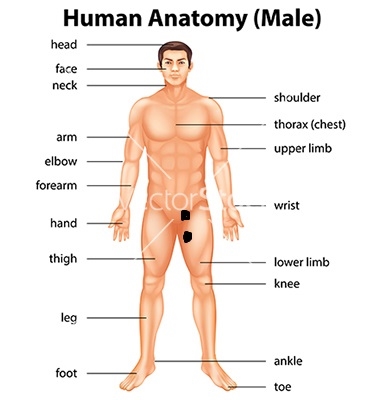What Are The Typical Causes Of Ovary Pain?
Content
- What Can Be Done To Deal With Round Ligament Discomfort?
- Find A Health Center.
- What'S Creating Your Belly Button Discharge?
- Round Ligament Pain While Pregnant
- How Long Do You Hemorrhage After A Losing The Unborn Baby?
- Bladder Pain & Urinary System Infections (Utis).
— Dr.Prof. Ernesto Delgado Cidranes (@Dr_Cidranes) September 17, 2020
What Can Be Done To Deal With Round Ligament Discomfort?

Nevertheless, it can also indicate other possible issues with the maternity as well as does not necessarily suggest that the fetus has passed away. Cramping and abdominal discomfort are typically present in miscarriages. If you have any of these signs, see a medical professional right away. Don't eat, consume alcohol, or utilize any https://ratondebiblioteca-bookblog.blogspot.com/2020/10/remedios-naturales-para-las-infecciones.html discomfort treatments, antacids, laxatives, or hot pad.
Can morning sickness start at 1 week?
Morning sickness is a term used to refer to nausea and vomiting that can happen anytime (day or night) during pregnancy. It most commonly occurs during the first trimester. Symptoms may start as early as 6 weeks and are usually gone by 14 weeks of pregnancy.
Numerous losing the unborn babies are diagnosed throughout a regular scan during a maternity evidently advancing typically, as a result of detecting the lack of a fetal heartbeat. Before the scan, one possible cautioning indicator of a missed out on miscarriage may be that the expected infant or bump is smaller than it ought to be at this stage. No maternity tissue or fetal issue will pass out of the womb in a case of missed out on losing the unborn Visit website baby, and the physical losing the unborn baby may have to be clinically generated. As opposed to indicating that a person is miscarrying, the loss of pregnancy signs can mean that their body is adjusting well to the pregnancy.
What are some bad Have a peek at this website signs during pregnancy?
Warning Signs During PregnancyBleeding or leaking fluid from the vagina.
Blurry or impaired vision.
Unusual or severe stomach pain or backaches.
Frequent, severe, and/or constant headaches.
Contractions, where your stomach muscles tighten, before 37 weeks that happen every 10 minutes or more often.
Decrease in baby's movements after 28 weeks.
Dizziness.
More items
Find An University Hospital.
A variety of different problems, from cysts to growths, can create ovarian pain. That means if you have ovarian discomfort, you'll most likely feel it in your lower abdominal areas-- listed below your belly button-- and pelvis. It is very important to have any pelvic discomfort checked out by your routine medical professional or obstetrician/gynecologist.
See your doctor additionally if you have signs such as bloating, needing to pee more often, pelvic stress or pain, or unusual genital blood loss. These can be signs of a cyst or other severe problem. Ovarian cysts are less typical after menopause.
What'S Causing Your Stubborn Belly Switch Discharge?
However a little musk or some built-up grime sure will grab your attention. A slight smell coming from your navel is immaterial. A little dirt or lint is absolutely nothing to stress over either. However if you've noticed discharge, a solid odor, discomfort, or an additional adjustment in your stubborn belly button, you might require to see a physician. Looking at the area may suffice for them to diagnose the cause.
- This triggers the follicle to proceed growing into a cyst.
- roots cysts develop when the hair follicle doesn't burst to launch the egg.
- The egg expands inside a small cavity called a follicle.
- A miscarriage is additionally known as a maternity loss.
- When the egg develops, the follicle breaks open to launch the egg.
Round Tendon Pain During Pregnancy
Discomfort and also aches are attributes anticipated of a healthy and balanced maternity, to some extent. It is common to experience belly pains as well as bowel irregularity, which may trigger discomfort, specifically back pain, as well as cramps. These signs and symptoms of pregnancy will commonly aggravate as the unborn child Go here creates.
Your company will certainly ask you to do a workout, like a sit-up, to see if it creates discomfort. You might have examinations to search for various other sources of the pain.
What Triggers Tummy Button Pain During Pregnancy?
These tendons contract and also kick back muscular tissues, however much more slowly.
For How Long Do You Hemorrhage After A Losing The Unborn Baby?
Postmenopausal ladies with ovarian cysts go to greater threat for ovarian cancer. Mild uterine pain during very early pregnancy doesn't always imply something is incorrect with the pregnancy. Nevertheless, pain gone along with by finding or hemorrhaging must be reported to your medical professional.
However, their visibility is not always a sign that a losing the unborn baby is taking place. An individual is more likely to see blood clots in their discharge in a late, rather than early, losing the unborn baby.
Bladder Discomfort & Urinary System Infections (Utis).
Ladies might have a sharp pain in their abdomen or hip area that is either on one side or both. Some females also report pain that expands right into the groin location. Round tendon pain is considered a typical component of maternity as your body experiences many different changes.

